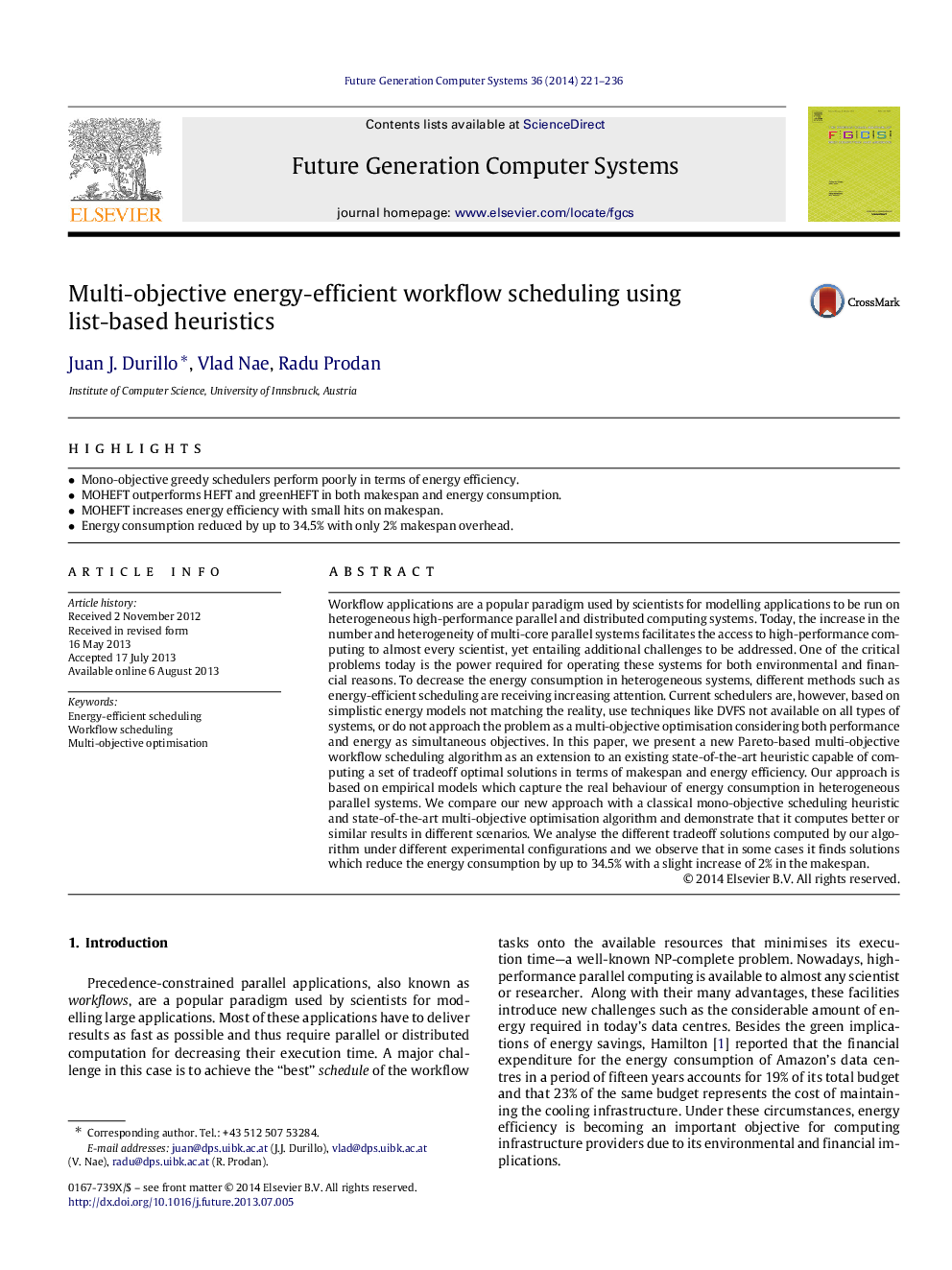| کد مقاله | کد نشریه | سال انتشار | مقاله انگلیسی | نسخه تمام متن |
|---|---|---|---|---|
| 425259 | 685710 | 2014 | 16 صفحه PDF | دانلود رایگان |
• Mono-objective greedy schedulers perform poorly in terms of energy efficiency.
• MOHEFT outperforms HEFT and greenHEFT in both makespan and energy consumption.
• MOHEFT increases energy efficiency with small hits on makespan.
• Energy consumption reduced by up to 34.5% with only 2% makespan overhead.
Workflow applications are a popular paradigm used by scientists for modelling applications to be run on heterogeneous high-performance parallel and distributed computing systems. Today, the increase in the number and heterogeneity of multi-core parallel systems facilitates the access to high-performance computing to almost every scientist, yet entailing additional challenges to be addressed. One of the critical problems today is the power required for operating these systems for both environmental and financial reasons. To decrease the energy consumption in heterogeneous systems, different methods such as energy-efficient scheduling are receiving increasing attention. Current schedulers are, however, based on simplistic energy models not matching the reality, use techniques like DVFS not available on all types of systems, or do not approach the problem as a multi-objective optimisation considering both performance and energy as simultaneous objectives. In this paper, we present a new Pareto-based multi-objective workflow scheduling algorithm as an extension to an existing state-of-the-art heuristic capable of computing a set of tradeoff optimal solutions in terms of makespan and energy efficiency. Our approach is based on empirical models which capture the real behaviour of energy consumption in heterogeneous parallel systems. We compare our new approach with a classical mono-objective scheduling heuristic and state-of-the-art multi-objective optimisation algorithm and demonstrate that it computes better or similar results in different scenarios. We analyse the different tradeoff solutions computed by our algorithm under different experimental configurations and we observe that in some cases it finds solutions which reduce the energy consumption by up to 34.5% with a slight increase of 2% in the makespan.
Journal: Future Generation Computer Systems - Volume 36, July 2014, Pages 221–236
